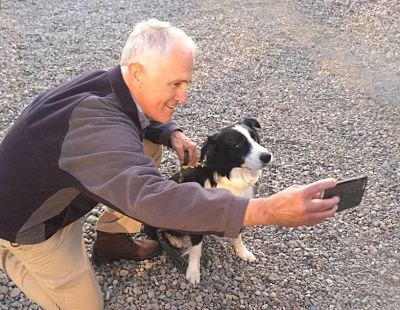Plans to retain people’s names and addresses for this year’s Census have sparked fear that the information could be used by Centrelink, the Tax Office and ASIO and may lead to mass civil disobedience or people lying on their forms, privacy groups believe.
The Australian Bureau of Statistics (ABS), which has been around since 1905, conducts a Census every five years on the second Tuesday in August. While this has always involved collecting names and addresses, the difference is that this time it wants to hold on to all of this information.
The Agency has said it wants to be able to combine Census data with other datasets, such as health and education statistics, to get a “richer and dynamic statistical picture of Australia.”
Statisticians argue this could provide insights into many areas, for example, the employment outcomes of different educational programs or designing mental health services, and result in better service planning and delivery.
Keeping names and addresses would also make surveys more efficient and reduce the cost and burden on Australian households, said the ABS.
But Jon Lawrence from the Electronic Frontiers Australia said retaining such information was unwarranted and intrusive and “an exceptionally bad idea.”
“At its very essence, it’s a massive invasion of the privacy of every Australian,” Mr Lawrence said.
He said it could be used by successive governments to pursue Australians over Centrelink or tax misdemeanours or to investigate suspicions of terrorism or other criminal activity.
“Once it’s there, the scope of these things tends to increase, data matching with the ATO and Centrelink. I don’t see any justification as to why these changes have been made.”
Mr Lawrence said ASIO would love to get their hands on such a comprehensive dataset. For example, they could use it to identify Muslims and pinpoint where they lived.
The most serious repercussions would be felt if people refuse to complete the survey or lie on their forms, leading to a dramatic drop in the quality and coverage of Census data, he said.
“The biggest risk is that people will actually write rubbish. We have seen quite a lot of angst already and we haven’t really even started the campaign. This is just starting to get mainstream coverage and I think there’s a genuine issue there.”
ABS statistician David Kalisch has insisted the Agency has never – and never will – release identifiable Census data. He said names and addresses will be stored securely and separately from other Census data.
Despite these assurances, Mr Lawrence believes Census data is so detailed that people could be re-identified.
“De-identification is a furphy,” Mr Lawrence said. “You can still do it in many circumstances. The reality is that people will be able to be identified by certain bits of Census data is very, very real (and) that information can be used.”
Anna Johnston from Salinger Privacy, who is also a former NSW Deputy Privacy Commissioner, believes the ABS cannot give a cast-iron assurance that the data won’t be misused.
In her blog for Salinger Privacy, Ms Johnston said opportunistic hackers, organised criminals, ABS staff or just negligence and human error could leak damaging, highly personal information and make fraud and identify theft a risk.
“Seeking to justify the proposal by saying that the ABS will never release identifiable information ignores the point that they shouldn’t have it in the first place,” Ms Johnston said. “And, as my mother taught me – you shouldn’t make promises you cannot keep.
“This is the greatest potential impact of the proposal – that the ABS becomes the unwitting tool of a government intent on mass population surveillance.”
Ms Johnston said the agency’s own 2006 privacy review had identified the danger of “function creep”, where stored information is used more broadly than for the purpose it was originally intended.
“The statisticians must be living in fantasy land if they think that once they hold identifiable data on all 24 million people in Australia, that not a single government department, minister or police force will be interested in tapping into that data for their own, non-research purposes,” she said.
“Just look at the agencies queueing up to get their hands on the metadata that telecommunications companies must now keep by law.”
She said it would give the government “a rich and deep picture of every Australian’s life, in an identifiable form.”
A backlash has already begun on the agency’s Facebook page.
Andrew Graham said: “Australian Bureau of Statistics … If you think I’m writing my personal data on the 2016 census, you can kindly shove it.”
Marc Zanin told the ABS: No matter what the govt of the day’s says, they do NOT need this identifying information. They can’t be given any chance of using it against their population. This is a nightmare for the ABS!!! A disaster!
“If you lose the trust of the populace who can’t fill it out, because it’s just too scary, then why not return to the previous model? Please? It’s a total and absolute FAIL, FAIL, FAIL for the ABS.”
For its part, the ABS has said data privacy is a “fundamental pillar of an official statistical system” and that function creep was highly unlikely: “In Australia these protections have existed since the foundation of the Australian Bureau of Statistics in 1905. This will not change.”
The Agency said that names and addresses will be removed from personal and household Census information after data collection and processing and stored separately. Statisticians will not be able to match Census answers with the person they were from.
Proposals were floated last year to make the Census every decade, rather than every five years, as already happens in countries such as the US, the UK and most European countries.
The Abbott government also had a discussion about abolishing the Census entirely in favour of data sampling, which would be much cheaper.
The Census is an expensive undertaking. ABS statistician Mr Kalisch said the 2011 survey of every household cost $400 million to produce and employed 43,000 temporary workers.
The Australian Bureau of Statistics was contacted for comment.
Comment below to have your say on this story.
If you have a news story or tip-off, get in touch at editorial@governmentnews.com.au.
Sign up to the Government News newsletter



The government say it will not introduce voting electronically as it is subject to hacking and manipulation.
So how is the census information less important than a stupid vote.
If you remove the name and address, there is at least a chance if privacy.
Other than for tracking or intelligence gathering, why require the name and address?
Identity theft is my greatest fear.
People need to make a stand on this issue and not do it COLLECTIVELY.
What worries me is secret anti-terror laws, how is anyone to be sure that a secret act doesn’t override the census act. It may be that under another act ASIO or another intelligence agency is permitted to spy on the ABS network, that way the ABS abides by their act and secrecy laws and ASIO gets what they want. No ordinary citizen would ever know…
Something else , that I have not seen mentioned , is that once you have completed the Census online the government now has a valid ‘IP’ address associated with the name and information all nicely referenced by their ’12’ digit code assigned to you . Do it on someone else’s PC, and now they know your associates! Remember the German political party that assigned numbers to people?